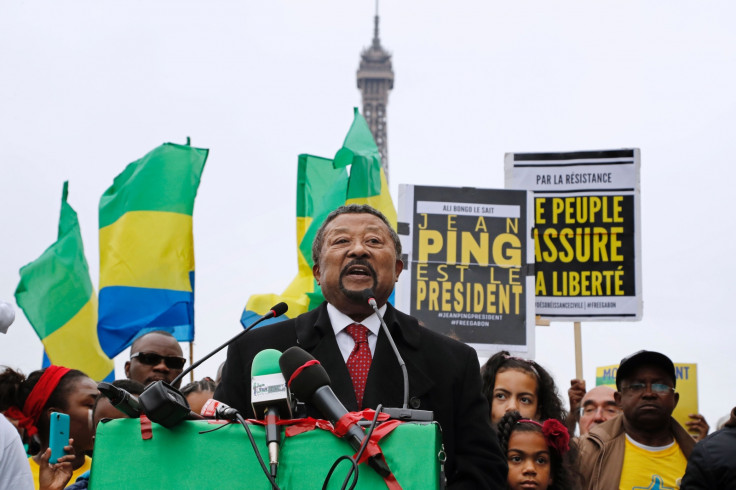Gabon opposition leader Jean Ping calls for EU sanctions on President Ali Bongo
Ping says stiff penalties could resolve political stalemate after Gabon's disputed polls.

The political opposition in Gabon have called for potential European sanctions against President Ali Bongo Ondimba following the West African nation's recent contested elections.
Days of deadly rioting followed the controversial re-election of Ali Bongo, 58, on 31 August 2016. Bongo, whose family has been in power for nearly 50 years, was declared president until 2025. Opposition candidate Jean Ping, 74, claimed he was cheated of victory when he accused the incumbent leader of vote rigging to secure his win. France urged a recount.
"There ought to be consideration of sanctions - economic sanctions or sanctions against persons - but I think sanctions against persons will be favoured," Jean Gaspard Ntountoume Ayi, Ping's spokesman, told RFI.
Asked whether he really believed Brussels would impose this type of sanctions, Ntountoume Ayi said he did not think it was too late.
"Gabon today is at a stalemate and has [still] not emerged from the August 2016 elections, so it is not too late to impose sanctions because it may be one of the solutions to get out of this situation," the spokesman said. " It is a question of taking note of the declaration made by the Constitutional Court was not right (...) It should be annulled."
Ping's allies are optimistic sanctions could be imposed following a resolution on the post-electoral rule of law crisis that followed the poll approved a month ago by the European Parliament. The resolution, which is not binding, demands that European Council ministers take up the matter and trigger the Cotonou Agreement.
This 2000 accord stipulates that Brussels and Libreville must start consultations to find solutions to the alleged human rights violations and the political crisis in the country under the Article 96 of the Cotonou Agreement (see box).
Going further, if the council of the European Union is not satisfied with Gabon ministers' commitment to human rights, democratic principles and the rule of law, it can impose sanctions against "those responsible for violence, abuse of human rights and sabotage of the democratic process".
What does the Cotonou Agreement say?
- A partnership agreement between the African Caribbean and Pacific states and the EU.
- Article 96 of the agreement 'aims to safeguard and promote human rights, democratic principles and the rule of law in Africa, the Caribbean and the Pacific through political dialogue'.
- Article 96 outlines that consultations should arise if a signatory country breeches human rights or fails to achieve good governance.
- Breeches can lead to 'the cessation of aid and development cooperation'.
- If no satisfactory resolution to the differences can be found, the EU can take 'appropriate measures', such as more or less serious sanctions.
© Copyright IBTimes 2025. All rights reserved.






















